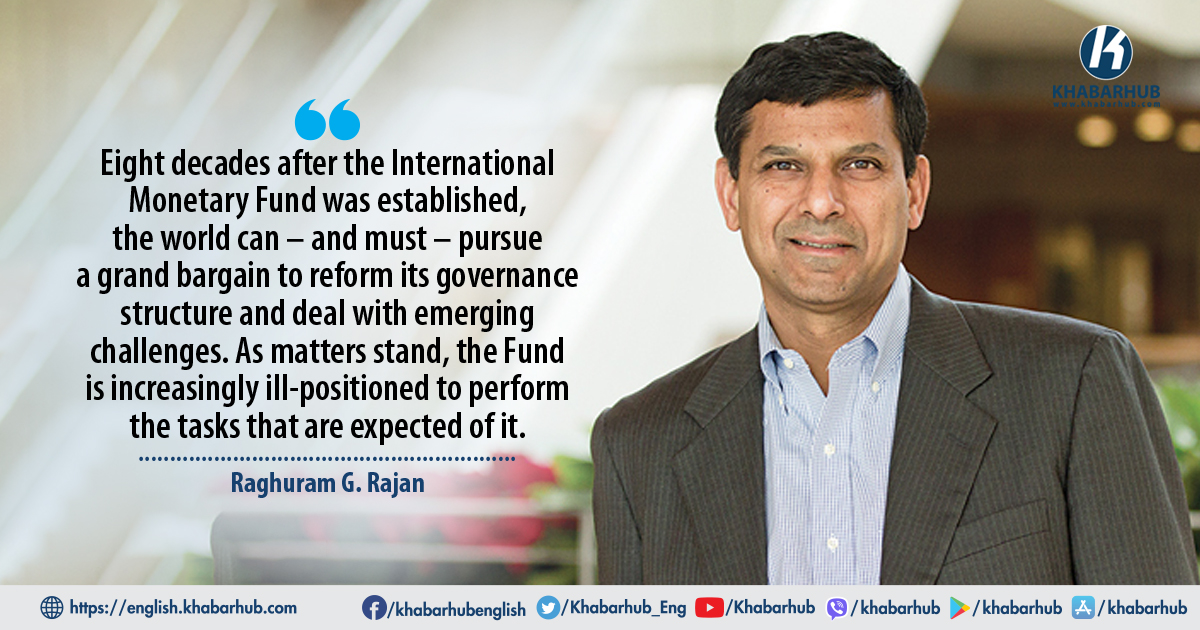The world needs an effective International Monetary Fund. Countries have become hugely indebted following the COVID-19 pandemic, and the risk of new shocks grows as the world warms and new pathogens emerge.
Protectionism (sometimes cloaked by security interests) is on the rise, impeding traditional pathways to development.
As economies falter, no one wants to absorb the desperate people who are braving dense jungles or climbing onto rickety, overcrowded boats in search of decent livelihoods.
We need an honest broker to help countries negotiate fair rules for international exchange (including, most immediately, rules on subsidies), to call out violators, to criticize bad policies, and to step in as lender of last resort for those in distress.
Unfortunately, the IMF, despite the high quality of its management and staff, is increasingly ill-positioned to perform these tasks.
The institution’s problems lie in its anachronistic governance. Most key decisions, including on country loans, are made by the Fund’s executive board, where G7 members hold most of the power.
The United States wields a de facto veto, and Japan’s voting power exceeds that of China, whose economy dwarfs Japan’s.
India’s vote share is far smaller than the United Kingdom’s or France’s, even though its economy is larger and growing faster than both.
Because the world’s erstwhile dominant powers refuse to let go, the underrepresentation of fast-growing emerging economies persists.
At the same time, it is no longer clear that the old powers always have the global interest at heart.
In the immediate postwar era, the United States, as the sole economic superpower, could be trusted to enforce the rules of the game and generally remain above the fray.
But as its worries about being overtaken have grown, it has switched from referee to player.
Once a champion of the idea that openness benefits everyone, it increasingly wants openness only on its own terms.
The quality of the Fund’s lending decisions is also likely to deteriorate. Whenever the Fund lends, it is natural that well-connected countries in economic trouble tend to obtain more relief on easier terms.
While there have always been political influences on Fund lending, there has been a greater chance of it succeeding in the past because of outside assistance from powerful board members – think, for example, of the Mexican crisis in 1994, where the US contributed a hefty share of the rescue package.
With fiscal resources now tight even in the G7, the IMF increasingly will have to risk its capital as powerful board members with relatively little skin in the game direct loans toward friends and neighbors.
Worse, such special treatment may not even help the loan recipients, many of whom need tough love.
In sum, the IMF’s governance structure will increasingly hurt the Fund’s work. But will redistributing IMF vote shares to reflect the current distribution of economic power not lead to chaos?
Won’t China block loans to any country linked to the G7, and vice versa? Isn’t dysfunctional governance better than absolute paralysis?
Perhaps, which is why any reforms affecting countries’ voting power should be accompanied by a fundamental change in IMF governance.
The executive board should no longer vote on operational decisions, including individual lending programs.
Instead, the Fund’s top management should be given free rein to make operational decisions for the benefit of the global economy, with the board setting broad guidelines and periodically examining whether those guidelines have been met.
More to the point, the executive board should become a governance board, much as with corporations.
It would set the organization’s operational mandate, and appoint and change management and monitor overall performance; but it would not control day-to-day decisions.
All operational decisions should be depoliticized. Indeed, that is what John Maynard Keynes would have preferred to see at the time of the Fund’s founding.
Fearing America’s undue influence, he proposed a non-resident board, which in those days of poor communications and steamship travel implied a non-executive board and an empowered management.
There are some foreseeable objections to this proposal. The first is that powerful countries will refuse to commit their taxpayers’ resources to the Fund unless they can exercise full control over their use.
But this is precisely what the dominant board powers already expect the rest of the world to do. What is good for the goose…
Another objection is that emerging powers like China might not agree to a change in Fund structure now that they themselves are on the verge of acquiring power.
But if they don’t accept any change, neither will the old powers. The recent 16th General Review of Quotas made little change in the distribution of board power.
Expect more of the same unless the old powers and emerging powers reach a grand bargain.
Finally, countries would be uneasy with fiscal resources being spent by unelected management who could be insensitive to the needs of the world’s people.
But political considerations will still play a role. Board directors, appointed by governments, will appoint IMF top managers and give them broad marching orders, based on their governments’ political assessments.
For example, the rules governing lending can become more lenient if the directors deem it appropriate.
The difference is that the rules will be applied uniformly across all countries.
Powerful friends of the needy can still help, but they will have to do so outside the Fund program, rather than by bending rules.
Eight decades after the IMF was created, the world can – and must – pursue a grand bargain to reform its governance structure and deal with emerging challenges.
The alternative is to do little and watch the institution fade into irrelevance.
(Raghuram G. Rajan is Professor of Finance at the University of Chicago Booth School of Business)
Copyright: Project Syndicate









Comment